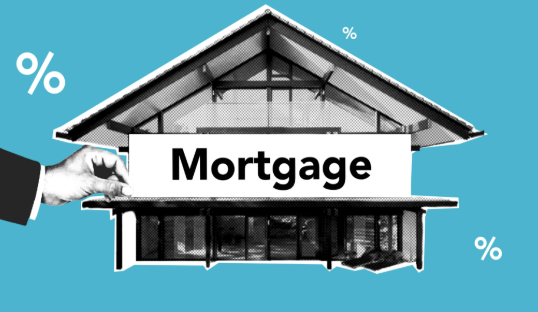Switching your mortgage in Ireland can feel like navigating a maze. With interest rates fluctuating and new deals cropping up, it’s often tempting to search for better options. Whether you’re looking to lower your monthly payments or tap into equity for home improvements, the decision isn’t always straightforward. But how much does it actually cost to make that switch? Understanding the financial implications is key to ensuring that moving from one lender to another aligns with your long-term goals.
In this guide, we’ll break down everything you need to know about switching mortgages—covering hidden fees, potential savings, and even incentives available in Ireland. If you’re considering taking the plunge into a new mortgage deal, read on!
What is Mortgage Switching?
Mortgage switching involves changing your existing home loan to a new one, often with a different lender. This process allows homeowners to take advantage of better interest rates or terms that suit their current financial situation.
When considering mortgage switching, it’s essential to assess the potential benefits. Lower monthly repayments can lead to significant savings over time. Additionally, you may find more flexible repayment options or features that align with your lifestyle.
However, it’s not just about finding a lower rate. You should analyse the overall deal and understand any changes in fees and conditions associated with your new mortgage.
Keep in mind that each lender has varying requirements and processes for approval. Familiarity with these factors will ease your journey through the mortgage application process while helping you secure the best deal tailored for you.
Major Costs Involved in Switching a Mortgage
Switching your mortgage can help you save money, but it’s important to understand the main costs involved.
Mortgage Discharge Fee
Charged by your current lender to remove their claim on your property.
Typical cost: €175 – €350
Early Repayment (Breakage) Fee
Applies if you leave a fixed-rate mortgage early. Usually a percentage of your balance.
Example: 3% of €250,000 = €7,500
Tip: Variable-rate customers often avoid this fee.
Property Valuation Fee
Your new lender will need a valuation to confirm market value.
Cost: €150 – €250
Some banks offer free valuations.
Legal Fees
Solicitor fees for handling the mortgage transfer.
Cost: €700 – €1,200
Many lenders cover this cost or offer cashback.
Land Registry Fee
Charged by the Property Registration Authority to record your new mortgage.
Cost: €175 – €250
Administrative Fees
Small setup or processing fees from the new lender.
Cost: €100 – €250
Optional or Hidden Costs to Be Aware Of
When considering a mortgage switch, it’s essential to look beyond the obvious costs. Hidden fees can creep up and surprise you if you’re not careful.
- One common expense is the valuation fee. Lenders often require a property assessment to determine its worth before approving your new loan. This cost varies but can be substantial.
- Another potential pitfall is exit fees from your current lender. Some mortgages come with penalties for early repayment; these charges can eat into any savings you hope to achieve by switching.
- Don’t forget about legal fees either. You’ll need solicitors to handle paperwork, which adds another layer of expenses that might not be clear at first glance.
- Insurance requirements may also change when switching lenders, leading to different premiums or additional coverage needs that could impact your budget significantly.
How to Estimate Your Total Mortgage Switch Cost
Estimating the total cost of switching your mortgage involves a few key factors.
- Start by identifying any early repayment penalties that may apply to your current loan. These fees can vary significantly depending on your lender’s terms.
- Next, look into application and processing fees associated with the new mortgage. Lenders often charge for credit checks, valuations, and administrative tasks during this transition.
- Don’t forget about legal costs. Hiring a solicitor to handle the paperwork adds another layer of expense but is crucial for a smooth process.
- Consider insurance as well; some lenders require home insurance before approving the switch.
- Factor in potential changes in interest rates or product fees while calculating overall affordability over time.
Keeping all these elements in mind will give you a clearer picture of what to expect financially when making this important decision.
Ways to Minimise the Cost of Switching Your Mortgage
- Shop Around: Compare interest rates and offers from multiple lenders to find the most competitive deal.
- Use a Mortgage Broker: A broker familiar with the Irish market can help you secure better rates and navigate fees efficiently.
- Negotiate with Your Current Lender: Ask if they can match competitor offers or waive certain fees to keep your business.
- Time Your Switch Wisely: Wait until your fixed-rate or promotional period ends to avoid early repayment penalties.
- Explore Government Schemes: Check for Irish government grants or assistance programmes for first-time buyers that can lower costs.
- Prepare Documentation in Advance: Ensure all your paperwork is accurate and complete to prevent delays or extra processing fees.
- Review All Fees Carefully: Understand each charge—such as legal, appraisal, and registration fees—before committing to the switch.
Talk to Money Maximising Advisors today and discover how much you could cut from your monthly repayments.
When Switching a Mortgage Makes Financial Sense?
Switching your mortgage can be a strategic financial move, especially when interest rates drop. If you find a lower rate than what you’re currently paying, the potential savings can be significant over time.
Another reason to consider switching is if your current mortgage terms no longer fit your lifestyle or financial situation. For instance, moving from an adjustable-rate mortgage to a fixed-rate one can provide stability in monthly payments.
Additionally, if you’ve improved your credit score since taking out your original loan, you may qualify for better terms now. This could lead to reduced monthly payments and overall interest costs.
Don’t forget about switching when looking for more flexible options. Some lenders offer features like payment holidays or the ability to port your mortgage to a new property—advantages that might not have been available before.
FAQ’s About Switching Mortgages
1. How long does it take to switch a mortgage?
The process typically takes anywhere from a few weeks to a few months. The exact timeframe depends on your lender’s procedures and how quickly you can provide the required documentation.
2. What costs are involved in switching a mortgage?
Common costs include exit fees, valuation (appraisal) fees, legal fees, and potential administrative charges. Always review your new lender’s terms carefully, as hidden costs can sometimes appear in the fine print.
3. Do I need a specific reason to switch lenders?
No, switching is entirely your choice. Many homeowners switch simply to secure better interest rates, lower monthly payments, or improved service from another lender.
4. What should first-time buyers know before switching?
First-time buyers should familiarise themselves with lender eligibility criteria early on. Being prepared with accurate documents and meeting all requirements helps speed up the approval process and reduce delays.
Conclusion
Switching your mortgage can be a strategic financial move, especially if it means reducing monthly payments or accessing better loan terms. Understanding the costs involved is crucial to making an informed decision. By being aware of both major and hidden fees, you can effectively estimate your total switching cost.
Moreover, exploring ways to minimise these expenses—such as leveraging government incentives or negotiating with lenders—can make the process more manageable. Always remember that when done right, switching mortgages not only offers potential savings but also paves the way for a brighter financial future.
If you’re considering this step, seeking advice from experts like Money Maximising Advisors could provide valuable insights tailored to your unique situation. Knowing how to navigate the mortgage application process and understanding lender requirements will position you for success in achieving favourable mortgage terms.
Get expert mortgage advice from Money Maximising Advisors and find a deal that truly works for you.










